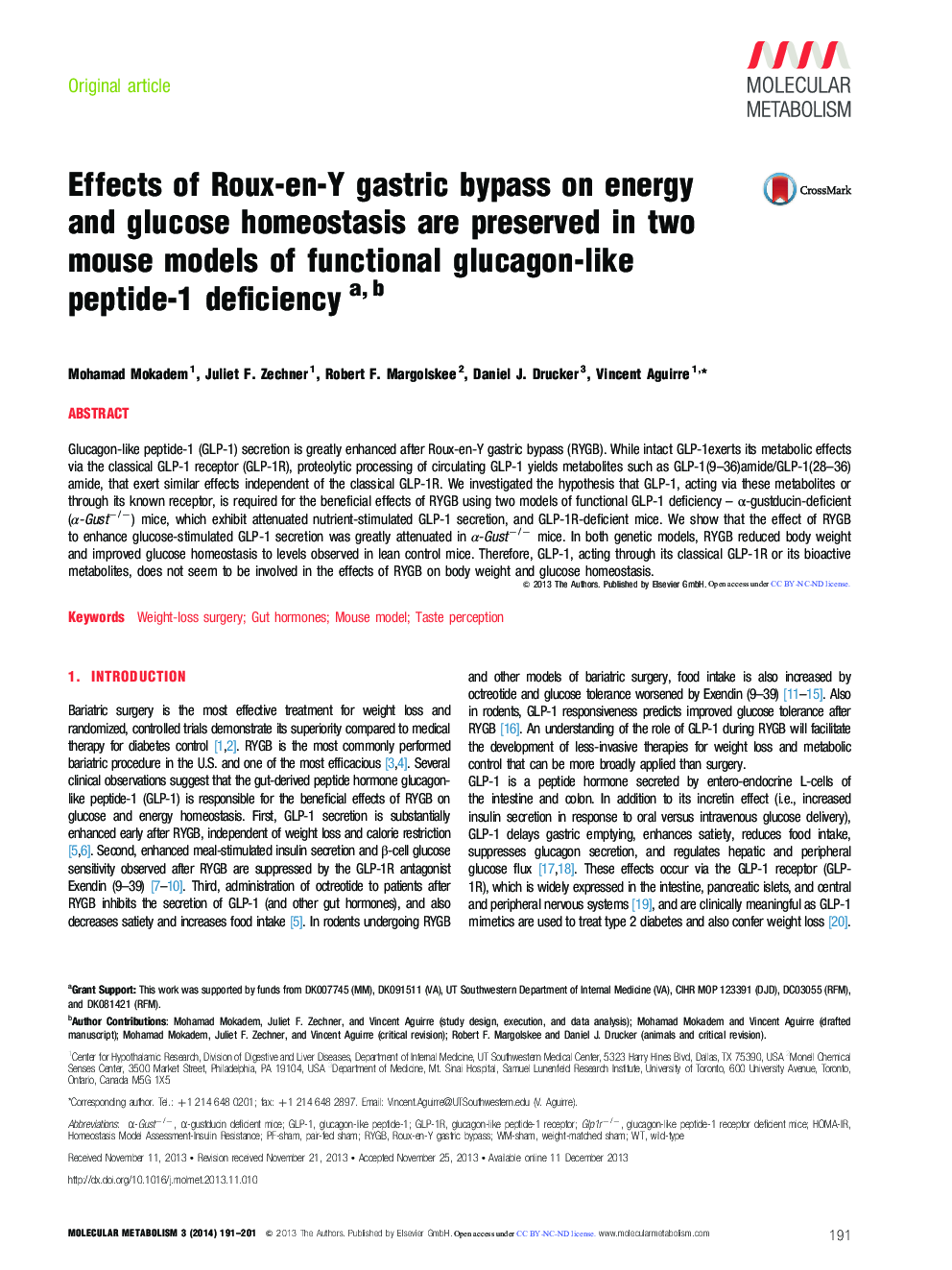| Article ID | Journal | Published Year | Pages | File Type |
|---|---|---|---|---|
| 3001454 | Molecular Metabolism | 2014 | 11 Pages |
Glucagon-like peptide-1 (GLP-1) secretion is greatly enhanced after Roux-en-Y gastric bypass (RYGB). While intact GLP-1exerts its metabolic effects via the classical GLP-1 receptor (GLP-1R), proteolytic processing of circulating GLP-1 yields metabolites such as GLP-1(9–36)amide/GLP-1(28–36)amide, that exert similar effects independent of the classical GLP-1R. We investigated the hypothesis that GLP-1, acting via these metabolites or through its known receptor, is required for the beneficial effects of RYGB using two models of functional GLP-1 deficiency – α-gustducin-deficient (α-Gust−/−) mice, which exhibit attenuated nutrient-stimulated GLP-1 secretion, and GLP-1R-deficient mice. We show that the effect of RYGB to enhance glucose-stimulated GLP-1 secretion was greatly attenuated in α-Gust−/− mice. In both genetic models, RYGB reduced body weight and improved glucose homeostasis to levels observed in lean control mice. Therefore, GLP-1, acting through its classical GLP-1R or its bioactive metabolites, does not seem to be involved in the effects of RYGB on body weight and glucose homeostasis.
